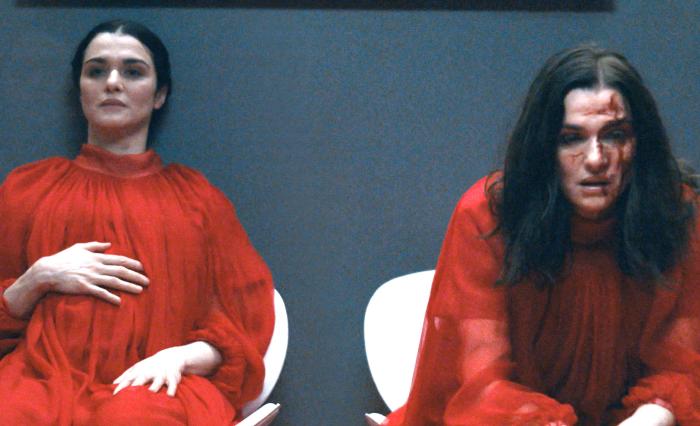Born Again: Dead Ringers (Alice Birch, 2023)
The new mutants.

Midway through Waiting in the Wings, Cherrie Moraga’s book about her son’s premature birth, it occurred to me that I don’t think I’ve ever read a “normal” birth story.
Birth is supposedly “natural.” It’s the only thing keeping the species going. We’ve been doing it for millions of years. Calling something “natural” makes it sound like your body should just automatically know how to do it, like sneezing. Yet, of all the birth stories I’ve read, I can’t remember a single one where everything went as expected, or even one where everything went well.
I recall one woman’s account of her epidural failing. I recall another giving birth at home with a mild fever and her baby winding up in NICU. A third had potentially fatal pre-eclampsia and had to give birth early to save her own life; her daughter spent years in and out of the hospital. Moraga’s birth story is, somehow, even worse: Her son, Rafael Angel, was born nearly three months early — too early to live, everybody thought — and had to spend his first few months in an incubator. He had numerous surgeries. Part of his intestine was removed, at one point, to save his life. Moraga and her partner saw their son only when the hospital allowed it, and only when the snickering, homophobic security guards would permit them both to assume the title of “mother.”
These are the good births, the modern births, the ones where everybody lives. They’re not Charlotte Bronte (keeled over while pregnant because of hyperemesis gravidarum, overactive morning sickness) or Mary Woolstonecraft (died shortly after giving birth because her doctor didn’t wash his hands). Women do still die, mostly Black women, because their doctors don’t listen to them or don’t care about them or don’t even believe that Black bodies experience pain. As “natural” as childbirth might be, our constructed social realities and hierarchies always do shape it. The United States has the highest maternal mortality rate in the developed world, and the number of deaths is rising.
There is no normal birth, and no safe birth either. Translating a soul into flesh is messy, difficult, dangerous work. If we don’t see it as such, that’s only because we tend to devalue the people who do it: Women, mostly. Trans people with uteruses, some of the time, and probably more often than history can ever accurately record. Calling something “natural” is another way to say that it isn’t work, or that it isn’t worth thinking about. It’s a way to say that, one way or the other, it will just happen. Childbirth always happens to somebody, though, and for those people, nothing about the process is simple.
I’m trying to tell you why I liked the TV adaptation of Dead Ringers — liked it, in some ways, more than the original movie, which never really resonated with me as deeply as it does for some people. It seems to be written from inside the reality of childbirth, in ways the original, with its cis male director and lead(s), never was. The original Dead Ringers was about Man’s doomed quest to own and control the mutant female body. (“Female,” here, coming with about a million caveats.) The adaptation is about what it’s like to live in that body; to possess, and be possessed by, the mutant powers of creation.